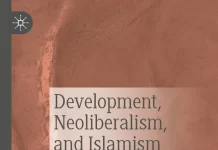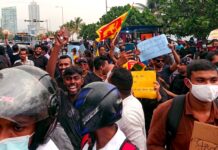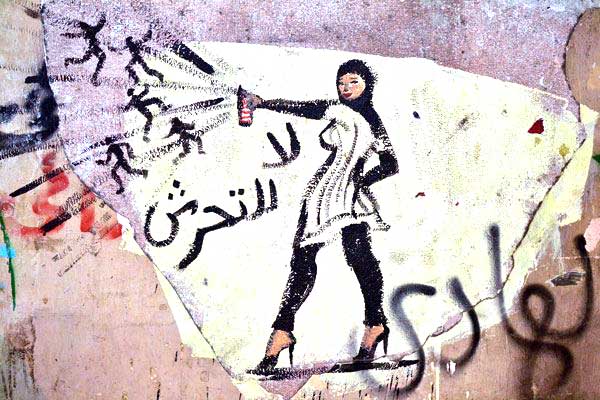So what are the challenges standing in the way of effective solutions and what efforts are underway on the ground? GSDM’s Tither Farhana spoke with Abdul Mannan, Program Unit Manager with Plan International Bangladesh in Dhaka:
![]()
1. How has the slums clearance affected the morale of people generally?
Slum clearance intensely affects the morale of its dwellers. In most cases it causes damage to the little property they have. It hampers their source of income and type of occupation as well. They feel helpless and more exposed to vulnerability. On the other hand, if not evicted, slum dwellers always feel uncertain about their future, since most of the slums are illegal.
Often the slum dwellers become arrogant against the other parts of society. They treat other classes of society as enemies and get involved in crime and anti social activities, which leads to anarchy.
Now they have developed some platforms to raise their voices on the issues in a more democratic way.
2. What burdens has this put NGOs under?
 This is one of the prime challenges for NGOs who work in urban areas, because bringing a lasting change in people’s lives is a long term process. It demands a settled population whereas slum clearances make people float. Although many slums exist for decades, the threat of eviction prevents its dwellers from owning the locality and the community community and from working for the betterment of that community in a holistic way. This sort of tension is a barrier for rights-based development. As a result, NGOs usually rush only to a few numbers of settled slums available, leaving the most vulnerable excluded. Even if some NGOs start working in unsettled slums, it becomes very difficult to bring the outcome at the expected level.
This is one of the prime challenges for NGOs who work in urban areas, because bringing a lasting change in people’s lives is a long term process. It demands a settled population whereas slum clearances make people float. Although many slums exist for decades, the threat of eviction prevents its dwellers from owning the locality and the community community and from working for the betterment of that community in a holistic way. This sort of tension is a barrier for rights-based development. As a result, NGOs usually rush only to a few numbers of settled slums available, leaving the most vulnerable excluded. Even if some NGOs start working in unsettled slums, it becomes very difficult to bring the outcome at the expected level.
3. What notice are people usually given before eviction?
Usually a legal notice is given by relevant authority in a very short time.
4. How do slum people get relocated?
In most cases, the authorities do not have relocation plans when the eviction happens. But of course, there is a few example of relocation. Govt. has made tiny apartments and sold those to the slum people at affordable price.
5. What is slum people’s relationship with city workers and Dhaka residents?
Slum people are largely involved in informal occupation of urban areas, like domestic help, being a rickshaw puller, a garbage picker etc. So there exists a very functional relationship between slum dwellers and city residents. For example,the street children work as the main sorters of huge garbage loads of Dhaka city.
6. Are their any flood precautions?
Slums within Dhaka City Corporation are not exactly flood prone, but they do have to deal with water logging problem. They have precautions at family level, like, fire wood preserve, furniture placement up on bricks, repairing houses before the rainy season etc. At community level, people do not have any collective efforts.
7. Any contingency planning for flooding?
Now few NGOs like Plan are working for developing contingency plan for flooding. They put emphasis on collecting and being updated with information, having first aid kits and so on.
8. Plan’s work – what is it?
Plan works in Quality Primary Education, Community Managed Health Care, Protection of Vulnerable Children, Disaster Resilient Future, Livelihoods, and Economic Empowerment for Youth (http://plan-international.org/where-we-work/asia/bangladesh/about/)
10. How tdoes Plan work with the government?
Plan has developed a very functional relationship with the government. We put our effort into scaling up programs and influencing national policies.
11. How does Plan work with other NGOs?
Team work and mutual partnership is one of core values of Plan. We work in collaboration and respect horizontal learning. We value the specialization of each individual NGO and promote its best utilization through rights-based development approaches.
12. What is Plan doing for women and children?
Plan works for the best interest of the children and we develop all our programs through the lens of ‘gender equality’
13. What is Plan’s greatest challenge?
Vested interests and lack of ownership. Also lack of coordination among different NGOs, government, and other stakeholders.
14. What is their most recent success?
Plan Bangladesh has been awarded for its excellent work on ‘Infant and Young Child Feeding’ (IYCF) during the ‘South Asian Regional Conference on Breastfeeding and Complementary feeding’ on 28th April 2012 at Ruposhi Bangla organized by Bangladesh Breastfeeding Foundation.
We also held a very successful campaign against child marriage held at a slum (Vasantec) in Dhaka City. The campaign has been documented and aired on BBC.
Other people who liked this article also enjoyed:
- Amahdiyya People Still a Target for Islamist Inquisitors in Bangladesh
- Fighting for Equality: The Hijra in Bangladesh & Beyond
- The Democratic Republic of Congo: A Historical Timeline
- Argentina: the Latin American Pioneer in Gender and Sexual Equality











International community should act right away to help Bangladesh fighting climate-change effect while still there is time.
[…] yet they realize that the growing slum sprawl and strain on basic services are unsustainable. The slum population in Bangladesh numbers over five million and is largely spread around clusters in Dhaka, as well as […]
[…] yet they realize that the growing slum sprawl and strain on basic services are unsustainable. The slum population in Bangladesh numbers over five million and is largely spread around clusters in Dhaka, as well as […]
[…] Climate Change Drives Rural-Urban Migration to Dhaka’s Slums […]
[…] Climate Change Drives Rural-Urban Migration to Dhaka’s Slums […]
The editing hasn’t brought out the point that poor workers from flooded farmland looking for work are swelling the ranks of the slum dwellers. Tthey are not returning home to their land to take up farming again as fields remain under water,. When the floods recede rivers have changed their courses and are also wider swallowing up more areas of agriculture.
David Meagher – Author
[…] Change and Gender Inequality in Bolivia: Why We Need Sustainable Development « Previous / Next » By thedevelopmentroast / August 2, 2012 / Climate Change, Women / Leave a […]
This article has left me speechless. it resonates with what a Bangladeshi Minister said in Rio at a side event that helped me understand the climate change challenges in this region. The time for the international community to act seesm to be running out!